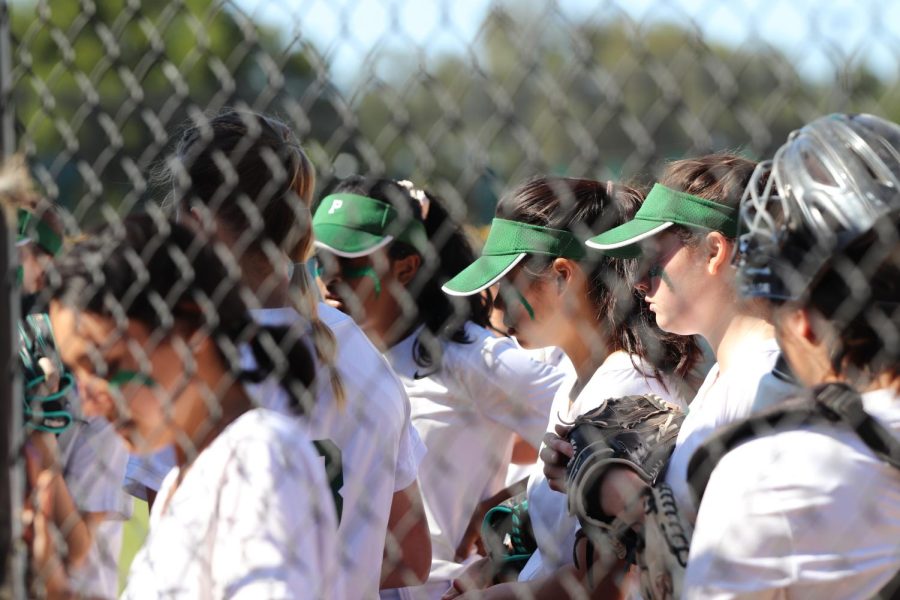It’s the bottom of the ninth in the 2017 American League Conference Series (ALCS) game six. Yankees 4, Astros 4. Bang! Yankees Pitcher Ardnolis Chapman stands on the mound confused as his 84 mile per hour slider was timed perfectly by Jose Altuve to hit a walk-off home run to win game six of the series. and become champions
For context, Chapman averages a 99.6 mile per hour fastball. Chapman’s snail-paced pitch was meant to throw off the batter completely, so Altuve’s seemingly miraculous hit sparked suspicion for many fans, and the league opened an investigation into the Astros organization for cheating. Later that season, the team was punished for using cameras to steal signs (or pre-learn the opponent’s play or pitch signals).
Cheating in sports dates back to ancient Greece in the Olympics. Methods of cheating included bribing officials and competitors, as well athletes faking their city-state affiliations. While many athletes consumed dried figs, mushrooms and the stimulant strychnine, these types of performance enhancing drugs (PEDs) were not considered cheating at the time.
A number of cheating scandals have come to light in recent years across different professional and college sports. Demystifying these scandals can be challenging for fans, losing trust and longtime support for some.
Quarterback Tom Brady and head coach Bill Belichick won six Super Bowls with the New England Patriots. Despite this duo and overall organization’s success, Belichick and Brady’s success has been tainted by two major cheating scandals.
Right before halftime of the September 9, 2007 regular season matchup between Patriots and the Jets, New England video assistant Matt Estrella was caught video taping the Jets sideline, specifically their defensive coach, who was relaying signs to the defense. Filming other teams’ sidelines is legal from NFL designated areas in the stadium, but Estrella was caught filming in an “unauthorized area”, most likely the New England sideline. Further investigation revealed that the Patriots were doing the same thing for most of the season. As a result, Belichick was fined the maximum amount possible, $500,000.
“Every NFL team does it”, said former PALY student and New England fan Henry Revenaugh. “[The Patriots] were the only ones that got caught.”
In 2015, the Indianapolis Colts, quarterbacked by one of Paly’s very own football coaches, Andrew Luck, was facing the Patriots in the NFC championship. In the game, New England quarterback Tom Brady threw an interception to D’Qwell Jackson. Little did the NFL world know, this interception would uncover yet another cheating scandal for the Patriots.
Jackson handed the Patriots ball to a Colts equipment manager to keep as a souvenir. Even though Jackson did not notice anything wrong with the ball, the Colts equipment team noticed a slight deflation in the ball and reported it to the NFL. Footballs are required to be above a certain pressure, measured in PSI, yet the Patriots ball was not above the required threshold. An investigation revealed that Brady had ordered the deflation of the balls. As a result, Brady was suspended for four games the next season. Additionally, Belichick and the organization were fined $2.85 million and lost four draft picks.
Declan Packer, Paly’s senior quarterback, shares that this strategy was a double-edged sword.
“Throwing a deflated football isn’t easier,” Packer said. “But a deflated football is easier to catch.”
Additionally, the recent University of Michigan cheating scandal has involved Michigan head coach and class of 1982 Paly alum Jim Harbaugh. An NCAA investigation revealed a Michigan staffer went to 30 different Big Ten games, and “illegally filmed” other teams’ sidelines, specifically their play callers. Harbaugh accepted a six game suspension, yet if he stayed in the NCAA, he would have most likely faced a full-year ban, which may be why he recently accepted a coaching job in the NFL. Michigan won the NCAA championship this year, but this scandal cast a shadow on the legitimacy of their title.
Campanile sports columnist and senior Neel Sharma shared that this situation is more common than some may believe.
“Sign stealing is done by so many [NCAA College Football Teams in the] FBS [league] at this point,” Sharma said. “It has become a part of NCAA football, and it’s something that’s usually not talked about, but the fact that they got caught meant the NCAA wasn’t going to let it slide”.
Baseball is a sport where cheating is so rampant, some forms of cheating have become an essential part of the game, even to the point where the MLB knows it happens, and lets it happen. The most common way teams cheat in baseball is through the use of sticky substances. At first, pitchers discovered “scuffing”, or scratching and cutting baseballs with a thumbtack, as well as throwing spit-balls would help increase the spin rate of a pitch.
Senior baseball player Jake Papp shared that many pitchers know common methods of this same tactic.
“The most common foreign substance used by pitchers is a combination of rosin and sunscreen creating a sticky substance,” he said.
One of the biggest offenders of using sticky substances in recent years is Yankees pitcher Garret Cole. In 2017, Cole was playing for the Pittsburgh Pirates. That season was his worst ever, playing-wise, with an earned runs average (ERA) of 4.26, yet 3 seasons later, he would sign a $324 million dollar contract with the Yankees. How did he do it?
“Hitting a baseball is one of the hardest tasks in sports,” Papp said. “If pitchers are using foreign substances, the hitter is put at an even larger disadvantage.”
From 2017 to 2019, Cole increased his fastball spin rate from 2164 rpm to 2530 rpm. For context, increasing your spin rate naturally past a certain point is practically impossible, and a higher spin rate means it is harder for the batter to hit the ball. Sparked by this and many other instances, the MLB issued a league-wide crackdown of foreign substances in the middle of the 2021 season for two reasons; first, to prevent cheating as a whole, and second to try to increase hits to make the game more exciting.
Yet, the crackdown actually brought more downsides than upsides to the MLB. Tampa Bay Rays pitcher Tyler Glasnow partially tore his UCL (a ligament in the elbow) in a regular season game, and blamed the crackdown on foreign substances for his injury
“I have to change everything I’ve been doing the entire season,” Glasnow said in the days following his diagnosis. “Everything out of the window, I had to start doing something completely new.”
Glasnow’s openness about using foreign substances reflects the MLB’s previous lackadaisical enforcement of foreign substances. In Glasnow’s and other MLB pitchers’ case, pitchers throw the baseball upwards of 90 to 100 miles per hour, causing immense strain on their elbow. While foreign substances that enhance grip make it harder for batters to hit, it protects pitchers by limiting the strain on their elbows.
To add on, sign stealing is another, less common, yet more well-known, form of cheating in the MLB. Back to the 2017 American League Championship Series with the suspicious Yankees vs Astros game, an MLB investigation revealed that the Astros had a camera behind the outfield, which relayed signs to the clubhouse. On an off-ball pitch, ie. a pitch that is not a fastball (the pitch that the Yankees player Chapman hoped would throw off the Astros), the Astros would bang a trash can, informing the batter of the pitch. As a result, they were fined 5$ million and lost their first round draft picks in the 2020 and 2021 MLB draft.
“Sign stealing is the furthest extent of cheating in baseball,” said Sharma. “It’s going to tell you the next pitch, which is really overpowered because the whole thing about pitching is that you don’t know what’s coming next, so it’s really unfair. The Astros didn’t deserve that World Series.”
Even though sign stealing can easily be prevented through changing signs throughout the game, MLB teams have created clever, elaborate methods to steal signs. Along with the Astros trashcan strategy, in 2017 the MLB found that a Boston Red Sox’s coach was using an Apple Watch in the dugout. Phones are outlawed in dugouts to prevent sign stealing, yet the Red Sox utilized new technology to gain an advantage.
“I have seen my teammates try to pick up on the coaches signs or how a pitcher might be tipping his next pitch, but in high school it is not too common for players to be stealing signs,” Papp said. “There have been situations where we have suspected the other team of stealing our signs, but we have been able to combat that by changing the way we signal to our players throughout the game.”
The most repeated offender of cheating is the Russian government in world competitions, specifically in the Olympics. According to British journalist Andrew Jennings, Russian KGB agents posed as anti-doping officials for the Russian Olympic 1980 team in order to fake results. In 2016, the World Anti-Doping Agency (WADA) released a report claiming that Russian officials and over 1000 athletes, many of which were involved in the 2016 Summer Olympics, were involved in a doping scandal. In 2019, as a result of this investigation and Russian attempts to manipulate the data in the investigation, the Russian Federation was banned by WADA from major sporting events, including the Olympics. That is why athletes from Russia do not compete under their flag.
Senior Paly wrestler and powerlifter Caiden Soltesz shares what techniques the Russian teams would use.
“When the Soviet Union was around, Soviet athletes would use mostly just testosterone and a lot of weird experimental drugs,” he said. “There was a group of powerlifters that were on a training regimen called the ‘Bulgarian Method’. They would max-out usually twice, and sometimes even more in one day because they were taking so many PED’s.”
Throughout history, cheating has always been a part of sports. With people’s careers, reputations and millions of dollars on the line, teams and athletes will do anything they can, if they can hide it effectively, to gain an unfair advantage. But, cheating is detrimental to the integrity of professional, college and sports in general as it ruins the reputation of the respective league or sport. Additionally, cheating through the use of PEDs can be extremely detrimental to the long-term health of athletes,
Yet, while cheating ruins the fairness of sports, forms of cheating, such as foreign sticky substances in baseball, can actually protect players. Nevertheless, the common agreement in sports is to prioritize fairness over a slim player safety advantage.
In all, gaining an unfair advantage in sports will never go away, but leagues and sports communities can take action to make the game fairer and safer. Recently, awareness towards the negative effects of PEDs has become prevalent, something that not only prevents cheating at the highest level, but protects the athletes themselves. Increased league wide investigations, especially in the MLB, have dramatically cracked down on widespread cheating through corking bats to increase the “bounciness” of them and PEDs. While the NCAA and professional sports leagues are making cheating harder, the public will never know the amount of cheating that has never been caught.






